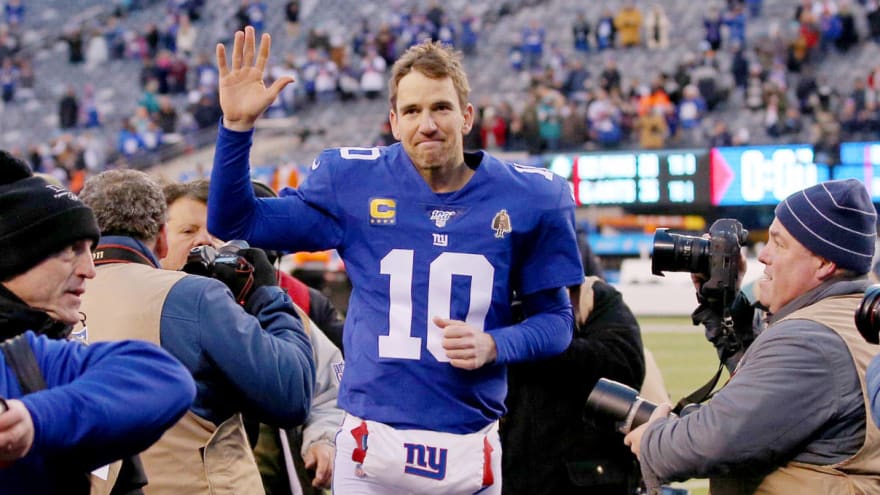Eli Manning’s Hall of Fame debate will be one of the more complicated in pro football history.
Responsible for two of the greatest quarterback runs in playoff history, Manning — who Wednesday announced his retirement — ranks seventh all time in touchdown passes (366) and passing yards (57,023). From 2004-17, he started 210 straight games, the third-best QB streak of all time.
But Manning, replaced by rookie Daniel Jones as Giants starter in 2019, trails 2004 classmates Ben Roethlisberger and Philip Rivers in accolades (four Pro Bowls to Big Ben’s six and Rivers’ eight). A strong argument also can be made that Manning was never considered a top-five quarterback during his career. And, of course, his last four seasons were, ah, sub-optimal.
That said, an Eli Manning bust will appear in the Pro Football Hall of Fame in Canton, Ohio. His performance during the 2007 and 2011 playoffs should seal his HOF case with voters.
We cannot live in an era when fans are flooded with shallow-dive “Tom Brady, six rings, GOAT” proclamations while Manning’s postseason success is treated as secondary to his lesser regular-season work. Brady does not quite boast the regular-season numbers of Drew Brees, Peyton Manning and, from an efficiency standpoint, Aaron Rodgers. His first three championships came when he was not yet a perennial Pro Bowler, but more the New England defense’s copilot. These topics are glossed over because of the Patriots’ playoff dominance.
It would then stand to reason the player most responsible for twice derailing Brady at his peak, in two of this century’s biggest games, should be appropriately credited for his high-end postseasons. (Note: Brady vs. the younger Manning is obviously not a debate; this is merely a perception point.)
Manning didn’t just toss in two Super Bowl flukes. Considering his underdog teams and quality of opposition, Manning conquered postseason gauntlets unlike those of almost any other championship-winning quarterback. He led the Giants to road victories over four NFC Nos. 1 or 2 seeds.
In addition to ruining the 2007 Patriots’ “greatest team ever” coronation in Super Bowl XLII, Manning ended Brett Favre’s Packers career by throwing for 251 yards and no interceptions in that season’s NFC title game — the fifth-coldest game in NFL history. Four seasons later, he ended Rodgers’ first MVP season, passing for 330 yards and three touchdown passes in a divisional-round romp over 15-1 Green Bay. In the NFC Championship Game a week later, he threw for 316 yards and two TDs to beat the 49ers and their No. 2-ranked defense.
Manning’s 296 yards passing in a 21-17 Super Bowl XLVI win against New England gave him the most (1,219) in one playoffs. The two-time Super Bowl MVP’s 87.4 playoff passer rating betters Roethlisberger’s and Rivers’. These are not all-encompassing measurement tools, with Mark Sanchez’s playoff rating (94.3) sitting higher than many Hall of Famers’, but Manning did not have as much help as you might think.
To continue reading this article, click HERE.
Originally posted on Yardbarker | By Sam Robinson | Last updated 9/17/19




